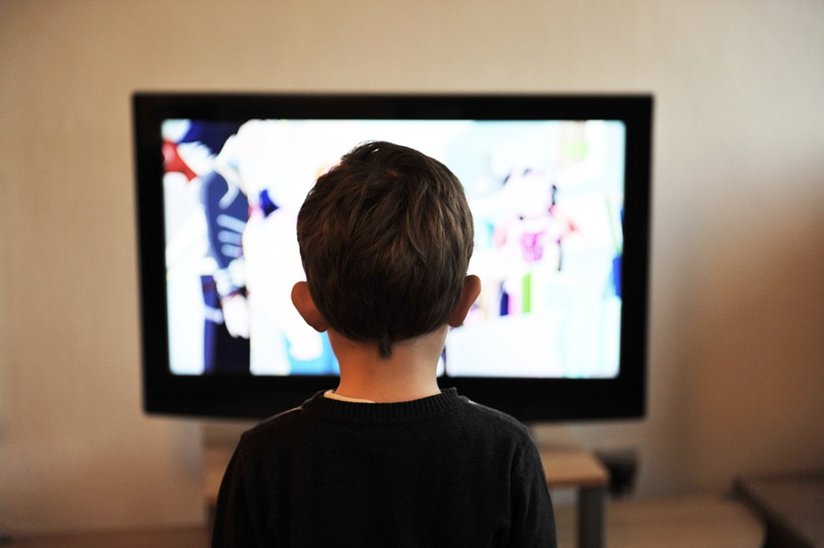
-
HOME
-
WHAT IS STANDOur Mission Our Values Our Help Contact
-
WHAT WE FIGHT FORReligious Freedom Religious Literacy Equality & Human Rights Inclusion & Respect Free Speech Responsible Journalism Corporate Accountability
-
RESOURCESExpert Studies Landmark Decisions White Papers FAQs David Miscavige Religious Freedom Resource Center Freedom of Religion & Human Rights Topic Index Priest-Penitent Privilege Islamophobia
-
HATE MONITORBiased Media Propagandists Hatemongers False Experts Hate Monitor Blog
-
NEWSROOMNews Media Watch Videos Blog
-
TAKE ACTIONCombat Hate & Discrimination Champion Freedom of Religion Demand Accountability
Scientology and Conspiracy: The Real Story
Perhaps you’ve come across “the real story” about Scientology on your Facebook feed, television screen or on some tabloid cover in the grocery store checkout aisle. These sources might have even espoused alarming accounts from a few individuals who left Scientology.
If one suggested that these articles, documentaries and TV shows were fabricated, you might be reluctant to believe it. How could that even be possible? For these sources to be lies, there would have to be a far-reaching, systematic misinformation campaign permeating our media.

Who would even orchestrate something like that?
You’re not a conspiracy theorist. Let’s be realistic.
Americans consume a staggering 15.5 hours of media every day, and what we watch and read clearly has an impact on what we think, and thus public opinion. Which is why it is so important that journalists tell it like it is.
The media is tasked with delivering that unbiased truth to the public, and news networks pride themselves on being “truthful.” CNN’s slogan is “The Most Trusted Name in News.” Fox News’ tagline has been “Fair and Balanced” for decades (until recently).

So if every network or newspaper claims to be a shining paragon of pure fact wouldn’t it be crazy to suggest there was an anti-Scientology propaganda campaign designed to discredit the religion?
Well, actually, not so crazy. The U.S. has a checkered past full of propaganda campaigns.
Beginning in the 1950s, during Cold War years, the CIA used journalists to influence public opinion by planting false information through a program called Operation Mockingbird.
The Tobacco Industry knew as early as 1950 that cigarettes caused cancer, but this information was suppressed with misleading news articles and advertisements until 1998, when they were forced to acknowledge the physical dangers of smoking.
Who would benefit from discrediting Scientology?
It’s not difficult to see the pattern here. Powerful players in government and multi-billion dollar industries want to protect their interests so they use their media connections to develop propaganda campaigns that turn the tide in their favor.
Now, back to Scientology. The “news” sources that denigrate the religion smell like propaganda campaigns. These networks don’t bother interviewing any of the overwhelming majority of Scientologists who are still in good standing with the church and they conveniently overlook the fact that their ex-Scientologist sources were kicked out for unethical behavior.
Journalists like Richard Behar and Lawrence Wright who have written scandalous accounts of Scientology have been proven again and again to be liars and propagandists.
Vocal ex-Scientologist sources like Leah Remini and Mike Rinder have even admitted that they were paid by television networks to provide sensationalist accounts of the “evils” of Scientology.
But why? Who would benefit from discrediting Scientology?
The answer is Big Pharma. This multi-billion dollar industry pulls the strings on mainstream corporate media. Almost every major media outlet in the United States shares at least one board member with at least one drug company. And it doesn’t stop there.

And drug companies regularly obscure the dangerous effects their drugs have on public health. One in six Americans are on psychiatric drugs, including hundreds of thousands of children under a year old. Big Pharma is everywhere, and it stops at nothing to expand its hold on American minds.

Scientologists oppose psychiatric drugs because of their harmful effects on the mind and body. The Church is one of the few organizations in the world that stands up—loudly—against the prevailing doctrine that psychiatric drugs are the only solution to mental health.
Now the idea that there might be a funded, coordinated misinformation campaign about Scientology begins to look more and more realistic.
So ask yourself: does it make sense to buy into the “accounts” of a small handful of rabid ex-Scientologists who stand to gain a big payout for discrediting the church that kicked them out?
Or does it make sense that millions of happy Scientologists around the world belong to a church that improves their lives, which is why nothing will stop them from being Scientologists, no matter the media storm raging?
Think for yourself. Keep your own counsel. And get your information straight from the source.









